Showing 181 to 190 of 272 results
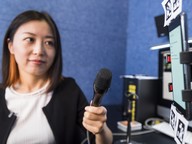
Dr Liu Can, Assistant Professor in the School of Creative Media (SCM) at City University of Hong Kong (CityU) is delving into the development of voice interaction for text composition. She has received an international award from Google Research in recognition of her promising work in this area.
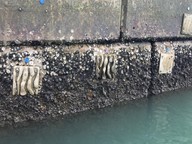
A joint-study led by a team of marine ecologists from City University of Hong Kong (CityU) has found that the eco-engineered tiles can increase habitat complexity on seawalls in Hong Kong, thereby effectively enhancing the marine biodiversity. The Hong Kong study is part of a global research project on the relationship between habitat complexity and marine biodiversity on human-built marine structures.
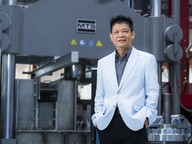
Professor Liew Kim-meow, a renowned engineer and Chair Professor in the Department of Architecture and Civil Engineering at City University of Hong Kong (CityU), has been elected Foreign Member of the Academia Europaea for his significant contributions in engineering science.
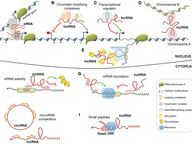
Long non-coding RNA (lncRNA) is a large and diverse class of RNA (ribonucleic acid) molecules which has become a growing focus of cancer genomics studies in recent years. In this article, we will explain what lncRNA is and its functions.
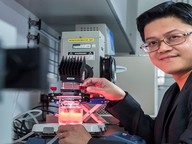
Hybrid organic–inorganic perovskite can be used in photocatalytic hydrogen generation. However, the traditional lead-based perovskite contains the toxic metal lead, therefore its application is hindered. Recently, a joint research team led by a scientist from City University of Hong Kong (CityU) has achieved a breakthrough in fabricating a novel lead-free perovskite material with a special structure.
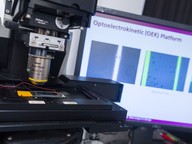
A novel method developed by a joint research team led by a scientist from City University of Hong Kong (CityU) can identify gastric cancer cells within minutes. This fast method with high sensitivity brings hope in speeding up the diagnosis of gastric cancer.
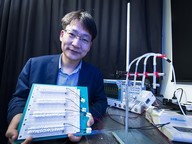
Professor Wang Zuankai of City University of Hong Kong (CityU) won the 2020 Xplorer Prize organised by the Tencent Foundation for his fundamental research on water energy harvesting. He will continue his research on energy harvesting as well as nature-inspired engineering with the awarded grant.
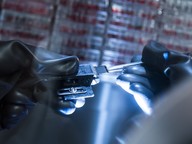
While the power conversion efficiency of perovskite solar cells (PVSCs) – a future of solar cells – has already greatly improved in the past decade, the problems of instability and potential environmental impact are yet to be overcome. Recently, scientists from City University of Hong Kong (CityU) have developed a novel method which can simultaneously tackle the leakage of lead from PVSCs and the stability issue without compromising efficiency, paving the way for real-life application of perovskite photovoltaic technology.

Because of their unique physical, chemical, electrical and optical properties, two-dimensional (2D) materials have attracted tremendous attention in the past decades. After revealing the realistic strength and stretchability of graphene, nicknamed “black gold”, researchers from City University of Hong Kong (CityU) have carried forward the success by unveiling the high defect tolerance and elasticity of hexagonal boron nitride (h-BN), another 2D material known as “white graphene”.
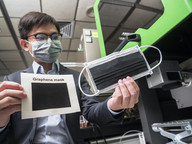
Face masks have become an important tool in fighting against the COVID-19 pandemic. However, improper use or disposal of masks may lead to “secondary transmission”. A research team from City University of Hong Kong (CityU) has successfully produced graphene masks with an anti-bacterial efficiency of 80%, which can be enhanced to almost 100% with exposure to sunlight for around 10 minutes.